I still wish Spore was good, but played today it's a slog
From primordial ooze to space-faring crews.
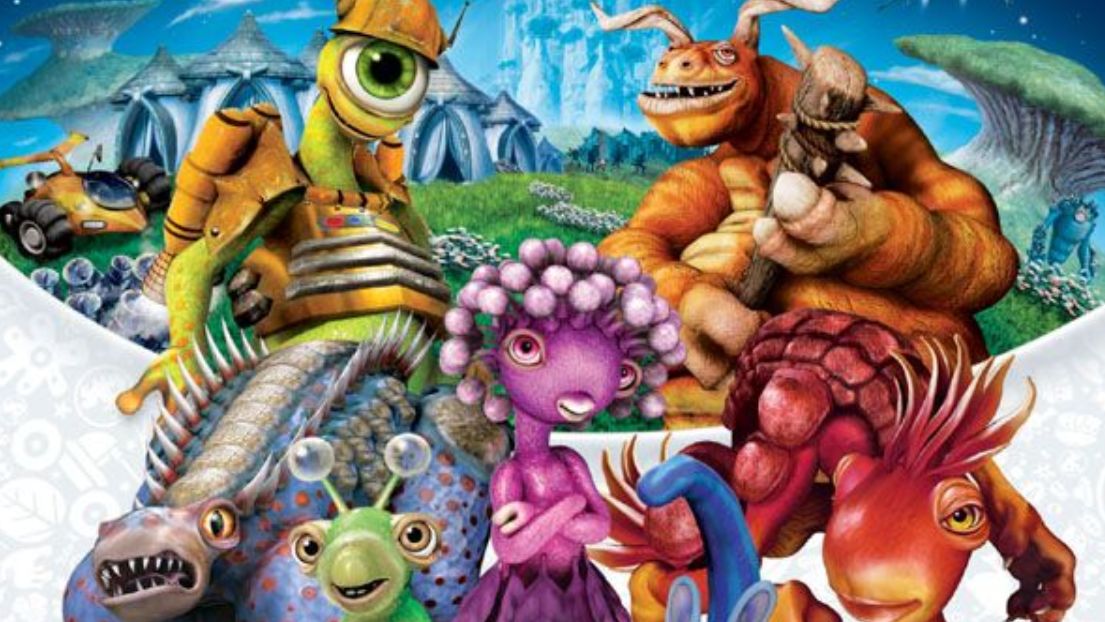
In Reinstall, we revisit a game from the past and see what kind of experience it gives us now. It's not a re-review, more just a snapshot of what it's like to play this game now.
Back in 2008, Spore was a source of daft community character creation joy, incredibly uneven ambition and a massive row about the digital rights management software EA insisted on using at launch. In many ways, Spore was No Man’s Sky before No Man’s Sky.
There are two Spore experiences I remember clearly from 2008. One was waddling around on land for the first time after graduating from the Cell stage to the Creature stage, and the other was the row about DRM. But the experience of actually playing any of it has faded and been replaced by the sense that it was one of those games that just didn’t really seem to go anywhere. Booting it up a decade later (or rather, booting it up on Steam, trying to coax it into recognising my EA login so I can access other people’s creations, then realising that system seems hideously broken on Steam so booting it up on Origin instead) that feeling of aimlessness returned, as well as a new awareness of the jarring switches between game stages, and how the space segment at the end dwarfs the other modes.
Life itself
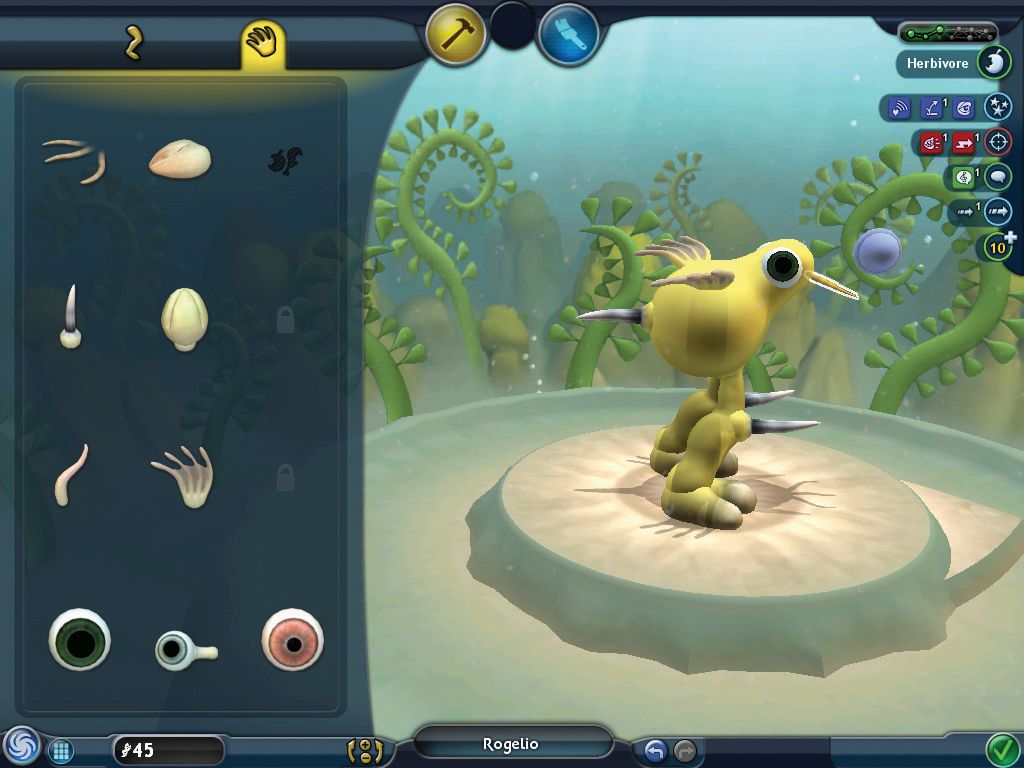
I should clarify that aimlessness: the game itself gives you tasks—go here, eat this, conquer that. But in three of the first four stages Spore struggles to cede control to the player and let them make meaningful decisions. You begin in the Cell stage which is the most enjoyable phase of the game. As a single-celled organism, you propel yourself around with your flagellum, using your mouth to chow down meaty nuggets or green snacks according to your preselected diet.
As you bob along, you can pick up different upgrades which you can affix to your wobbly bod by spending the DNA you’ve accumulated through surviving. Spikes are useful for attack or defence, extra flagella give you speed, electric nodes let you zap other creatures and so on. It’s essentially a browser or mobile phone game with an element of strategic avatar building.
As you eat more, your avatar grows. The bullies of the tidal pool fill the screen at first, but after a few snacks you’re the one bullying them. Chomp several more meals and your perspective has expanded so far you can’t even see them. But lest you get too confident, the backdrop offers a glimpse of truly monstrous creatures which await you at the next level. Next are the Creature and Tribal stages. The Creature stage is where you jam legs on your pondlife and push it out onto solid ground. The Tribal stage is just the Creature stage with tools and clothes. I’m fond of the Creature stage, but only because I like putting insect legs and growths on my creation.
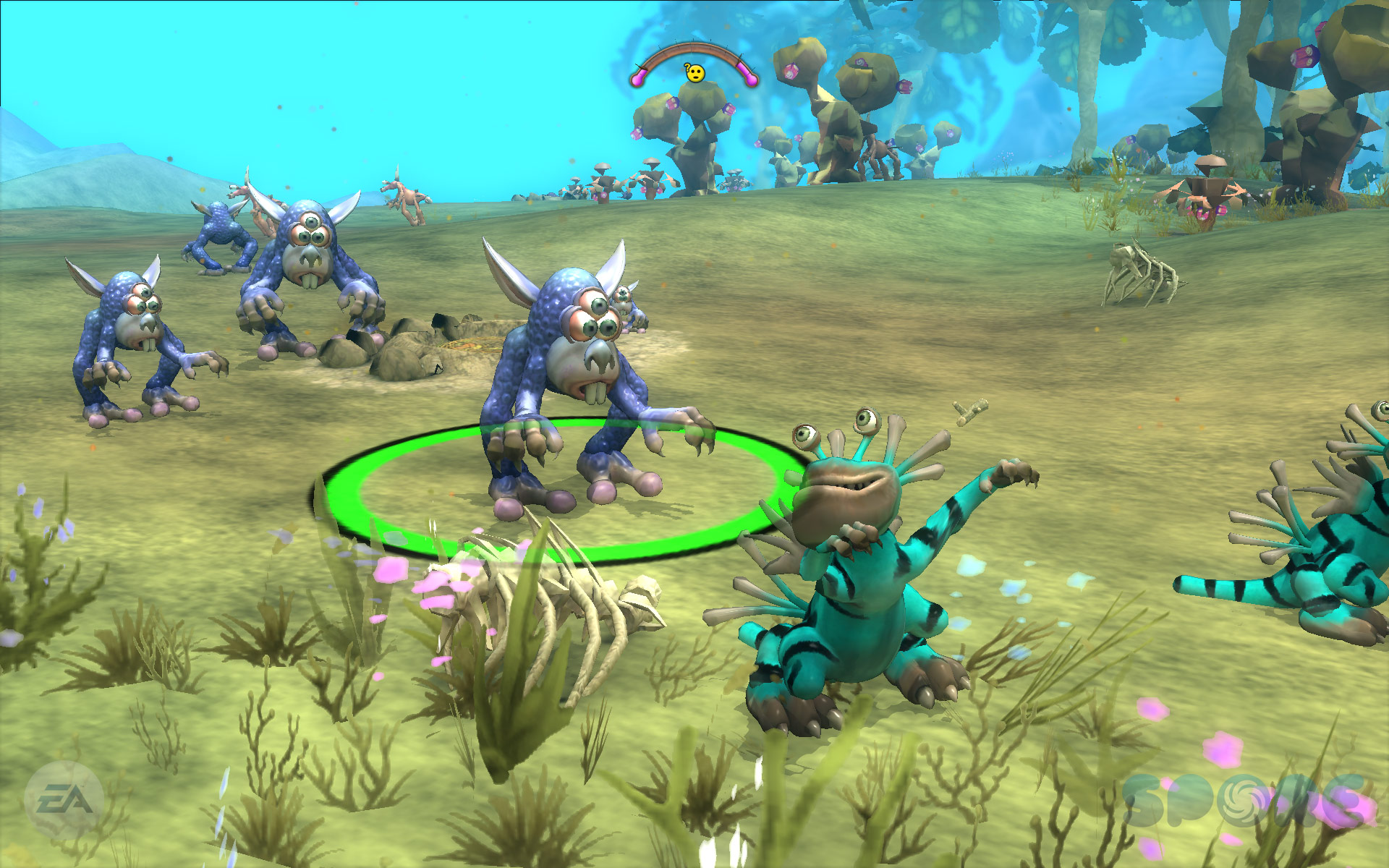
This is the part where you get to sculpt your lifeform. I had one species which was just a mess of knees and one which was a relatively successful impression of a bird (if you didn’t look at it closely). But to progress in the game you need to pick body parts according to their stat bonuses. I went on a charm offensive rather than killing my neighbours. For that you buy every body part that offers level three or four in social skills; special hooves for dancing, hands for posing, a mouth for singing.
Keep up to date with the most important stories and the best deals, as picked by the PC Gamer team.
Then you take your gang over to another nest site, mirror the skill they’ve performed and make friends. It is charming at first and then horribly repetitive. The Tribal phase is the one I truly hated this time around. It’s shallow, it’s dull, it overstays its welcome, the customisations it brings are charmless, and the switch in camera perspective means your creatures are now these distant, tiny shapes it’s impossible to connect with.
By the time I made it to the Space stage the idea of grinding missions for cash to expand my empire was exhausting
The Civ phase is a pared down version of Civilisation. And when I say ‘pared down’, I don’t mean the way a bulky, unwieldy log can be refined into a sleek occasional table. I mean Maxis whittled a grand oak tree down to a toothpick and expected players to climb it. To escape the Civ stage I (a species denoted by blue blobs on the map) had to conquer or convert cities of another species (denoted by an almost identical shade of blue). It was teeth-grindingly irksome. All of this then deposits you into the space exploration bit of the game. It’s certainly the most fleshed out and gamey bit of Spore, but that’s only in comparison to the game’s procession of prior game-lite offerings. This section comprises fetch quests which underpin basic diplomacy and economics systems. You can build your empire and progress towards an endgame of sorts if you want to. I tapped out once my fledgling empire had reached four planets.
Broad strokes
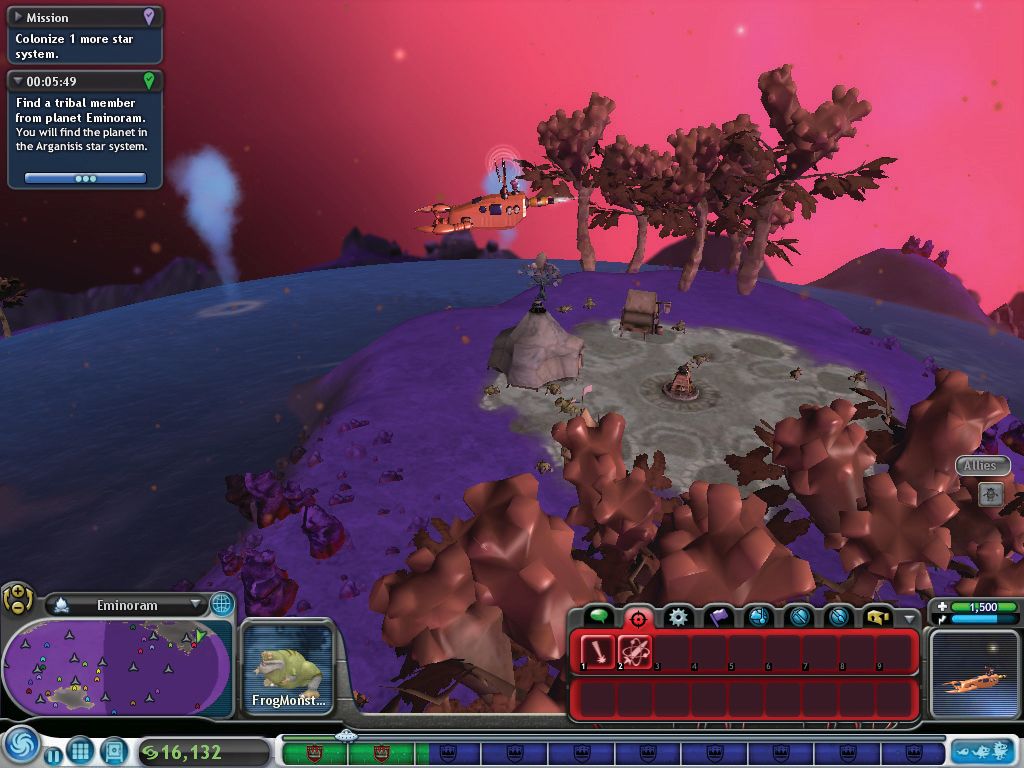
Spore was an ambitious project with a big budget and big names attached to it. Its TV advert asked “How will you create the universe?” and posited something called ‘creatiolutionism’. I confess I love that term but only because it’s a word as brilliantly stupid as ‘drivatar’ or ‘webinar’. Creatiolutionism helps explain a lot of what’s wrong with Spore. It can’t make up its mind whether it’s a god game or a science game. It can’t decide if it’s a Pac-Man-esque gobblefest or an RTS about roving musicians or maybe even a half-remembered dream about a space-based 4X. It’s too complicated and requires too many playstyle shifts for casual players and it’s too shallow and tutorial-y for those at the hardcore end.
Oh, and EA scuppered any last hopes of it being used in schools by a) only making the Creature Creator bit free, b) not making good on the science side, and c) releasing the thing in September and thus giving schools in regions like North America and Europe no time to consider using it that year anyway. At the time of release it did at least have a thriving community element.
It also led to interesting conversations about why it hadn’t worked. If you’re curious, Margaret Robertson’s thorough 2009 GDC talk on the subject is now available online. But going back a decade on, the game has that sad dead feeling you get when only a smattering of a community (or its traces) remain. The Cell stage holds up the best, I’d say, and the Creature Creation stuff is still delightfully easy to use, even if the aesthetic is a tad dated. But there’s no flow and no sense that you are curating a species in a meaningful way. I’d say that was true in 2008, but the feeling has only gotten worse over time. Going from playstyle to playstyle is disruptive and, even though it often feels like you’re stuck in a permanent tutorial, Spore’s interface is actually bad at teaching you what it wants.
Natural selection
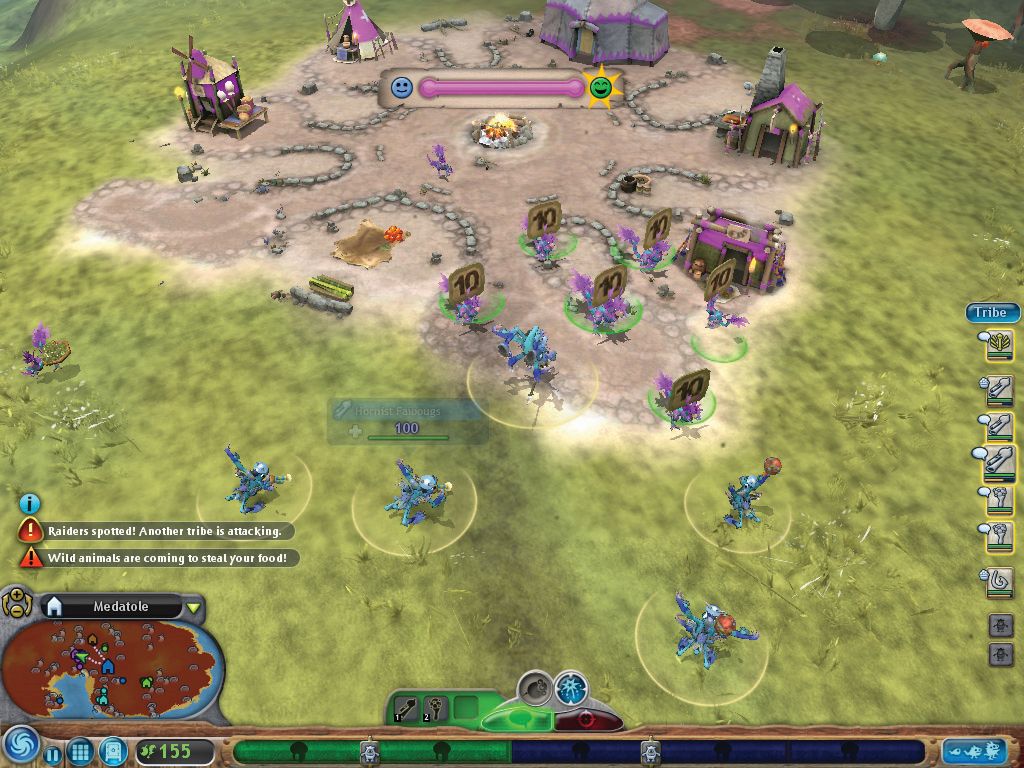
It also can’t help but fall even shorter because of the games and game series both new and old which it would need to compete with when you play it now. If you want a casual game with a sense of a civilisation advancing through time, 2010 brought Doodle God. If you want to marvel at the microscopic and the unfathomably enormous, David O'Reilly released Everything in 2017. No Man’s Sky has been exploring the subject of procedural generation on a massive scale since 2016. Pokémon continues to excel in cultivating a bond between the player and their creatures across evolutionary states. And on the analogue side, if you just like jamming eyes and legs into things, Hasbro has been churning out Mr Potato Head appendages since the early ’50s.
I find myself really wanting Spore to be good, even now. I want it to let me flow along a creatiolutionist path, taking some bizarre creation into space and getting giddy on the wonder of the universe. But Spore is a slog. By the time I made it to the Space stage the idea of grinding missions for cash to expand my empire was exhausting, and my interest in restarting as a new species lasted exactly as long as it took to return to the Tribal stage.

